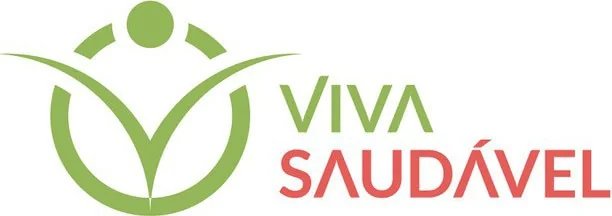Orders: +351 220 147 909
( call to national Portugal fixed network )
Email:[email protected]


Vitamin B12, also known as Cobalamin, is an essential nutrient your body needs but can't produce. An integral component of your wellness journey, this nutrient plays an indispensable role in a variety of body functions, from energy production and brain function to red blood cell generation and heart health. Understandably, incorporating sources of B12 into your diet is imperative. This vitamin is primarily found in animal products, but there are also fortified foods and supplements readily available today. However, like all nutrients, Vitamin B12 needs to be consumed in a balanced manner, as both its deficiency and excess can lead to health issues.
Benefits of Vitamin B12
Boosting Energy Levels
Vitamin B12 often garners attention for its role in enhancing energy levels. This essential nutrient aids in converting the food we eat into glucose, which gives us energy. When the body lacks sufficient amounts of Vitamin B12, it could result in fatigue and weakness. Some studies have suggested that Vitamin B12 supplements can help reduce feelings of tiredness and increase energy, especially in those already deficient in this vital nutrient.
Promoting Brain Health
Another significant contribution of Vitamin B12 for our health includes the support of our brain function. It plays a key role in maintaining the health of nerve cells and helps in the production of DNA and RNA, the body's genetic materials. Several studies have linked a deficiency of Vitamin B12 to neurological and psychiatric disorders. Insufficient amounts might lead to issues like memory impairment, depression and stress. Some studies also suggest that maintaining adequate levels of Vitamin B12 can potentially slow cognitive decline in older adults.
Red Blood Cell Production
Vitamin B12 is essential for the production of red blood cells. These cells play a vital role in carrying oxygen throughout the body. A lack of Vitamin B12 can lead to a type of anemia known as megaloblastic anemia, where the body either produces abnormally large immature red blood cells or a lower amount of red blood cells, leading to weakness, tiredness, or breathlessness.
Heart Health
Vitamin B12 also contributes to heart health. One of its roles is to assist in the production of a compound called homocysteine. If homocysteine levels in the body are too high, it can lead to an increased risk of heart diseases. Vitamin B12 helps break down homocysteine, thus reducing such risks.
Skin Health and Hair Growth
Vitamin B12 has been linked to skin health and hair growth. It helps in cell reproduction and continuous renewal of the skin, which can result in healthier skin. Vitamin B12 deficiency can lead to hyperpigmentation, nail discoloration, hair changes, vitiligo, and angular stomatitis. In terms of hair health, the nutrient’s role in cell production and specifically its support for the growth of red blood cells offers a beneficial side effect for hair. Red blood cells transport oxygen and nutrients to the scalp, which aids in hair growth.
Vitamin B12, otherwise known as cobalamin, is a necessary nutriments which can provide multivalent benefits for our body. Regardless, it's paramount to note that each individual has unique health requirements and may react differently to supplementation. As such, a professional healthcare provider should always be consulted prior to beginning any new supplementation, including that of Vitamin B12.
Sources of Vitamin B12
Vitamin B12 Richness in Animal Products
Cobalamin, or Vitamin B12, is primarily present in animal-derived products. This critical water-soluble vitamin is abundantly found in protein-rich foods like meat, poultry, seafood, and dairy products. Notably, shellfish such as clams and crabs, are packed with Vitamin B12 and so are fish types like salmon and trout.
Moving away from seafood, we find that organ meats are also potent sources of Vitamin B12. You'll find a high B12 concentration in liver, especially from beef. Similarly, organ meats like those from lamb, veal, and poultry exhibit high levels of Vitamin B12. As addition, red meat, which includes variants like beef and lamb, along with poultry types like chicken and turkey, are beneficial sources of this indispensable nutrient.
Dairy Products and Eggs
Dairy products are a reliable source of Vitamin B12. Milk, whether from cows, goats, or sheep, contain considerable amounts of this vitamin. Cheese, particularly Swiss and mozzarella, and eggs also have Vitamin B12. These are excellent alternatives for those who might not consume large amounts of meat or seafood.
Fortified Foods as Sources of Vitamin B12
As Vitamin B12 is primarily present in animal-based foods, this can create a deficiency concern for individuals following plant-based diets, such as vegetarians and vegans. However, many food manufacturers have responded by fortify , soy products, and plant-based milk alternatives like soy milk and almond milk. Nutritional yeast, a popular vegan condiment, is often fortified with Vitamin B12.
Vitamin B12 Supplements
For people who find it challenging to obtain their recommended daily intake of Vitamin B12 from food sources, supplements are a viable alternative. Vitamin B12 supplements are available in several forms including tablets, capsules, and liquids. These are particularly recommended for older adults, persons with certain medical conditions, and those on a strict vegetarian or vegan diet.
Understanding the Role and Absorption of Vitamin B12
Vitamin B12, or cobalamin, is a crucial nutrient that plays an instrumental role in maintaining a healthy nervous system, brain functions, and the creation of red blood cells. The body's ability to use this nutrient, better known as bioavailability, depends upon several factors, including the source of Vitamin B12 and the individual’s overall digestive health. For a healthy adult, about half of the Vitamin B12 intake usually gets absorbed by the body.
That said, it's crucial to understand that Vitamin B12 absorption is a sophisticated process, requiring a properly functioning stomach and adequate secretion of intrinsic factor - a protein produced by the stomach lining. Disturbances to any of these factors due to medical conditions, aging or other reasons could dramatically hinder B12 absorption, regardless of its abundance in the consumed diet. Therefore, understanding the body’s specific absorption capacity is vital when choosing the sources of your Vitamin B12 intake, whether via diet, fortified food, or dietary supplements.
Vitamin B12 Deficiency
Recognizing Vitamin B12 Deficiency: Identifying Symptoms and Consequences
Being a key player in several fundamental biological processes, inadequate levels of Vitamin B12 can lead to a deficiency causing a varied range of symptoms. These symptoms act as distress signals indicating the necessity for increased intake of this nutrient.
The most prevalent symptoms of Vitamin B12 deficiency encompass fatigue, weakness, constipation, as well as loss of appetite leading to weight loss. A deficient individual may also experience nerve-related issues, such as numbness and tingling sensations in hands and feet. Additional symptoms can range from cognitive to emotional changes, including increased depression, confusion, memory loss, and behavioral alterations. If not addressed in time, B12 deficiency can escalate to severe outcomes such as anemia and irreversible damage to the nervous system.
Causes and Risk Factors of Vitamin B12 Deficiency
Vitamin B12 deficiency can be caused by a variety of factors. The most common cause is a lack of intake from the diet, as this vitamin is prevalent in animal products such as meat, dairy, and eggs. Therefore, vegetarians and vegans are more prone to developing a B12 deficiency and may need to supplement their diet.
Medical conditions can also be a cause of Vitamin B12 deficiency. Certain stomach conditions or surgeries affecting the stomach can limit the body's ability to absorb Vitamin B12. Malabsorption disorders such as celiac disease or Crohn's disease can lead to a deficiency as well.
Age is another significant risk factor. Older adults may have a decreased ability to absorb Vitamin B12, leading to a higher risk of deficiency. Certain medications, particularly long-term use of acid-reducing drugs, can also cause a decrease in B12 absorption.
Potential Health Risks Associated with Long-term Vitamin B12 Deficiency
If left untreated, a Vitamin B12 deficiency can lead to severe and irreversible damage, particularly to the brain and nervous system. At lower than usual B12 levels, anemia can occur and cause symptoms such as fatigue or lightheadedness. If the deficiency continues, the body's nerves can become damaged leading to neurological symptoms such as numbness, tingling, balance issues, and memory loss.